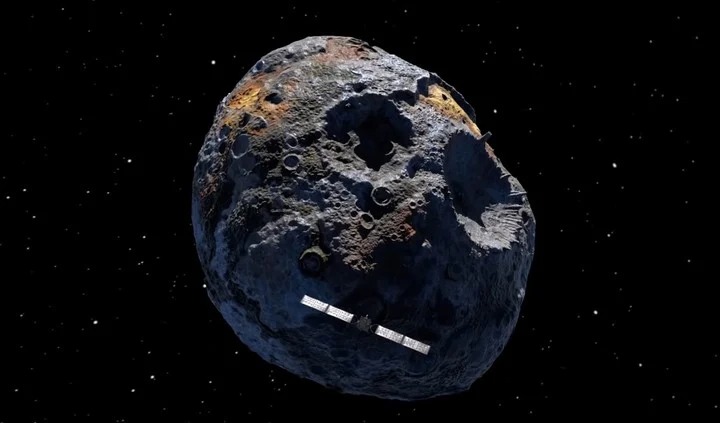Labatilla
NASA’s Psyche spacecraft will orbit a world that we can barely locate from Earth and that we’ve never visited.
to: Clarion
The target of NASA’s Psyche mission is a mineral-rich asteroid called Psyche, located in the main belt between Mars and Jupiter. It is an unexplored world in outer space.
From ground and space telescopes, the asteroid appears as a blurry speck. What scientists know from the radar data is that it looks like a potato and flips on its side.
By analyzing the light reflected off the asteroid, scientists have hypothesized that asteroid Psyche is extraordinarily rich in minerals.
What makes the space rock unique, the agency explains, is that it appears to be the exposed nickel-iron core of a primitive planet.
If so, the asteroid Psyche 16, named by the goddess Psyche from Greco-Roman mythology, could offer a close look inside rocky terrestrial planets, like Earth, which are usually hidden under layers of mantle and crust.
“If it turns out to be part of a metallic core, it will be part of the first generation of primitive cores in our solar system,” explained Lindy Elkins Tanton, a scientist at Arizona State University and the mission’s principal investigator.
The minerals that make up Psyche 16 are valued at more than the value of the entire global economy.
The asteroid deserves a huge figure
Elkins Tanton estimates that the iron you use alone would cost about 10,000 quadrillion dollars on Earth. For comparison, in 2020, the global economy was worth about $84.5 trillion, according to Forbes.
Scheduled to launch from NASA’s Kennedy Space Center in August 2022, Psyche will bypass Mars nine months later, using the force of the planet’s gravity to launch itself toward the asteroid. It’s a total trip of about 2.4 billion kilometres.
The spacecraft will begin its final approach to the asteroid in late 2025. As the spacecraft approaches its target, the mission team will turn on their cameras and the image of asteroid Psyche will shift from the diffuse point we know now to a high point that reveals the superficial features of this strange world for the first time.
The images will also help engineers orient themselves as they prepare to enter orbit in January 2026. The spacecraft’s initial orbit was designed to be at a safe, high altitude, about 700 kilometers above the asteroid’s surface.
Gravitational field measurements will become more accurate as the spacecraft approaches and images of the surface will be of higher resolution, allowing the team to improve their understanding of the object. Eventually, the spacecraft will establish a final orbit 85 kilometers above the surface.

“Proud web fanatic. Subtly charming twitter geek. Reader. Internet trailblazer. Music buff.”







More Stories
The final moments of the “Halloween Comet” were captured by the SOHO spacecraft
University of Michigan scientists have discovered what’s inside a black hole
NASA shares the scariest images of the sun in the lead-up to Halloween